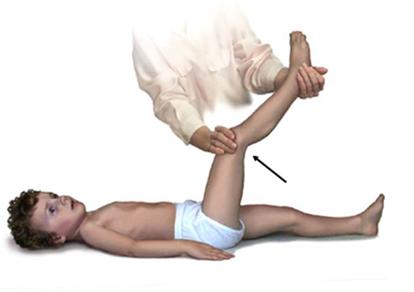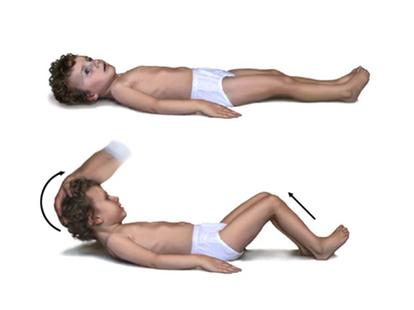Meningitis
Contents
Causes
Symptoms
Exams and Tests
Treatment
Outlook (Prognosis)
Possible Complications
When to Contact a Medical Professional
Prevention
Meningitis is a bacterial infection of the membranes covering the brain and spinal cord (meninges).
Causes
The most common causes of meningitis are viral infections that usually get better without treatment. However, bacterial meningitis infections are extremely serious, and may result in death or brain damage, even if treated.
Meningitis may also be caused by:
-
Chemical irritation
-
Drug allergies
-
Fungi
-
Parasites
-
Tumors
Most viral meningitis is due to enteroviruses, which are viruses that also can cause intestinal illness.
Many other types of viruses can cause meningitis.
-
Viral meningitis can be caused by herpes viruses, the same virus that can cause cold sores and genital herpes . However, people with cold sores or genital herpes are not at a greater risk of developing herpes meningitis.
-
Viruses that cause mumps and HIV can cause aseptic meningitis.
Symptoms
Viral meningitis occurs more often than bacterial meningitis, and is milder. It usually occurs in the late summer and early fall. It most often affects children and adults under age 30.
Bacteria meningitis is an emergency. You will need immediate treatment in a hospital. Symptoms usually come on quickly, and may include:
-
Fever and chills
-
Mental status changes
-
Sensitivity to light (photophobia)
-
Severe headache
-
Stiff neck (meningismus)
Other symptoms that can occur with this disease:
-
Agitation
-
Bulging fontanelles in babies
-
Decreased alertness
-
Poor feeding or irritability in children
-
Rapid breathing
-
Unusual posture, with the head and neck arched backwards (opisthotonos)
Meningitis is an important cause of fever in children and newborns.
You cannot tell if you have bacterial or viral meningitis by how they feel. Your health care provider must do this. Seek prompt attention if you have symptoms of meningitis.
Exams and Tests
The doctor or nurse will examine you. This may show:
-
Fast heart rate
-
Mental status changes
-
Stiff neck
One of the physically demonstrable symptoms of meningitis is Brudzinski's sign. Severe neck stiffness causes a patient's hips and knees to flex when the neck is flexed.
One of the physically demonstrable symptoms of meningitis is Kernig's sign. Severe stiffness of the hamstrings causes an inability to straighten the leg when the hip is flexed to 90 degrees.
If the health care provider thinks you have meningitis, a lumbar puncture (spinal tap) should be done to remove a sample of spinal fluid (cerebrospinal fluid, or CSF) for testing.
Other tests that may be done include:
-
Blood culture
-
Chest x-ray
-
CT scan of the head
Treatment
Antibiotics are used to treat bacterial meningitis. The specific type depends on which bacteria is causing the infection. Antibiotics do not treat viral meningitis.
Antiviral medicine may be given to those with herpes meningitis.
Other treatments will include:
-
Fluids through a vein (IV)
-
Medicines to treat symptoms such as brain swelling, shock, and seizures
Outlook (Prognosis)
Early diagnosis and treatment of bacterial meningitis is essential to prevent permanent neurological damage. Viral meningitis is usually not serious, and symptoms should disappear within 2 weeks with no lasting complications.
Possible Complications
-
Brain damage
-
Buildup of fluid between the skull and brain (subdural effusion)
-
Hearing loss
-
Hydrocephalus
-
Seizures
When to Contact a Medical Professional
If you think that you or your child has symptoms of meningitis, get emergency medical help immediately. Early treatment is key to a good outcome.
Prevention
Certain vaccines can help prevent some types of meningitis.
-
Haemophilus vaccine (HiB vaccine) in children helps prevent one type of bacterial meningitis.
-
The pneumococcal conjugate vaccine is now a routine childhood immunization. It is very effective at preventing pneumococcal meningitis.
Household members and others in close contact with people who have meningococcal meningitis should receive antibiotics to prevent becoming infected.
The meningococcal vaccination is recommended for:
-
Adolescents ages 11 - 12 and adolescents entering high school (about age 15) who have not already received the vaccination. A booster shot is given between age 16-18.
-
All college freshmen who have not been vaccinated and are living in dorms.
-
Children age 2 and older who do not have their spleen or who have other problems with their immune system.
-
Those traveling to countries where diseases caused by meningococcus are very common (ask your doctor).
Source: http://www.nlm.nih.gov/medlineplus/ency/article/000680.htm




 Общие симптомы
Общие симптомы  Голова, зрение, слух, речь
Голова, зрение, слух, речь  Шея и горло
Шея и горло  Грудь, сердце и дыхание
Грудь, сердце и дыхание  Живот, желудок, кишечник
Живот, желудок, кишечник  Конечности, суставы, спина, поясница
Конечности, суставы, спина, поясница  Таз, мочеполовые органы
Таз, мочеполовые органы  Наружные поверхности, кожа, волосы
Наружные поверхности, кожа, волосы